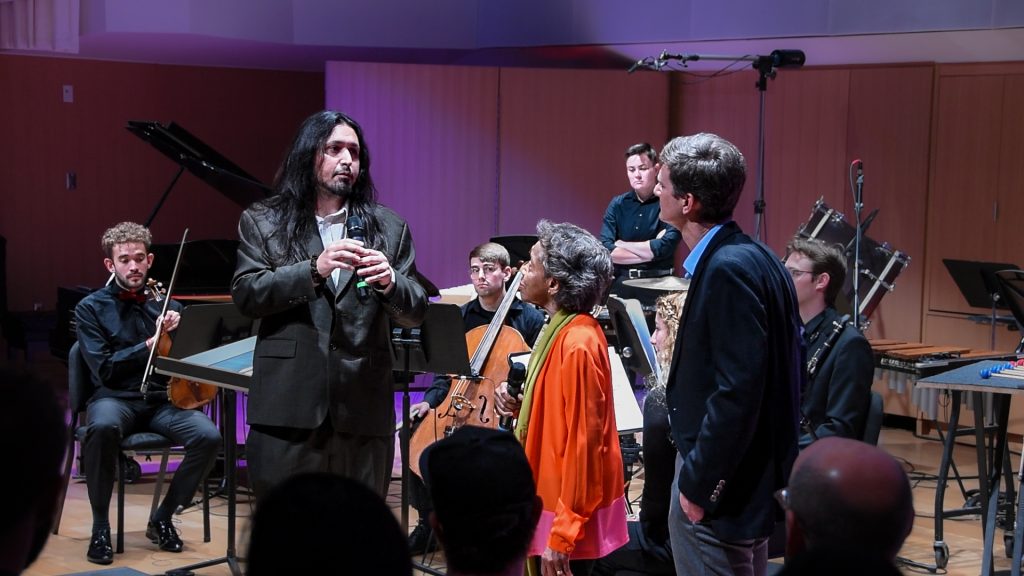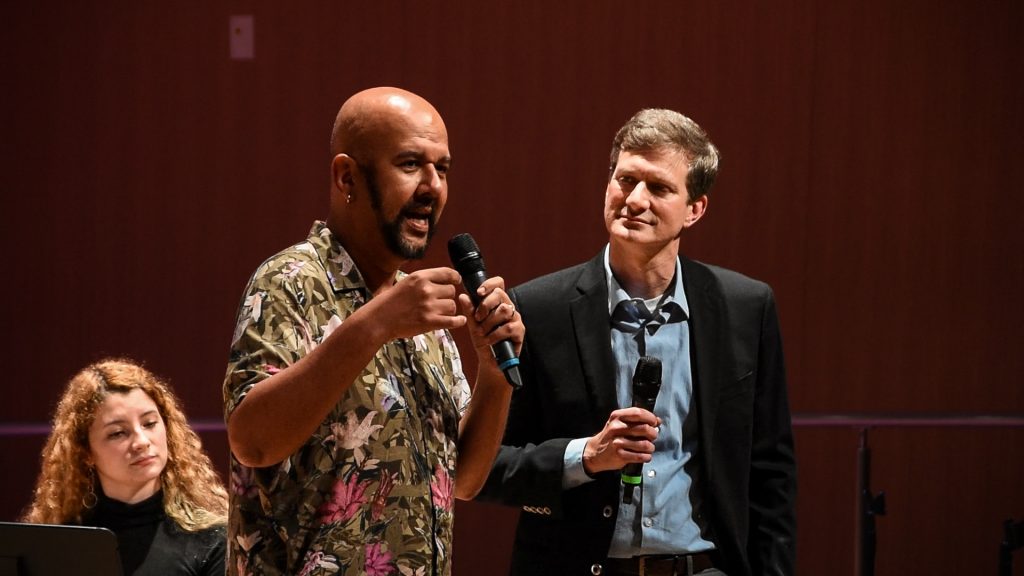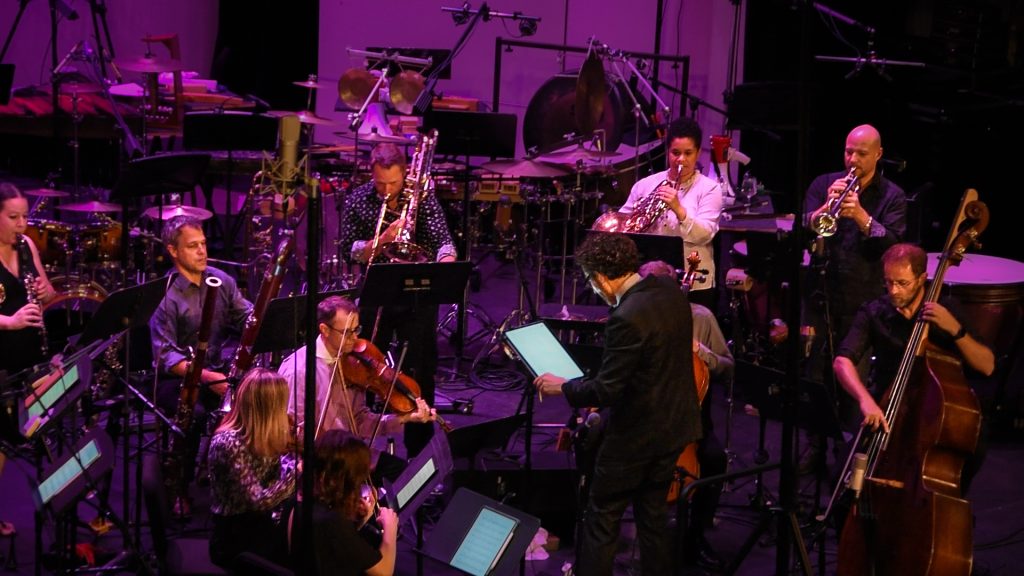The 2023 Mizzou International Composers Festival wrapped up on Saturday, July 29, with a concert at Columbia’s Missouri Theater. It featured world premieres of new works by eight MICF Resident Composers, performed by Ensemble-in-Residence Alarm Will Sound.
The Resident Composers are Santiago Beis, Chen Yihan, Peter Fahey, Sophie Mathieu, Ali Can Puskulcu, Kelley Sheehan, Trevor Van de Velde, and Max Vinetz.

The Festival, which opened on July 26, also included premieres of two works by the Festival’s Guest Composers: Tania León’s Gran Toque (arranged by AWS pianist John Orfe) and Marcos Balter’s Code-switching, performed by Alarm Will Sound. Also featured were compositions by Claude Baker and Texu Kim. That concert was also held at the Missouri Theater.
Throughout the week, León, who is a Kennedy Center Honoree and Pulitzer Prize winner, and Balter worked closely with the Resident Composers through private lessons and workshops and worked with Alarm Will Sound and the Mizzou New Music Ensemble during rehearsals and performances of their music. They also spoke about their music onstage during performances.

Other Festival events included a concert by the Mizzou New Music Ensemble, held in the Sinquefield Music Center’s Sheryl Crow Hall. It featured works by the two Guest Composers as well as music by Kevin Day and Resident Composer Santiago Beis. Mizzou faculty Amanda Collins and Wes Warnhoff also performed works by Fred Onovwerosuoke and Mizzou graduate Aaron Mencher.
Also in Sheryl Crow Hall was an evening of electric performances by special guest artist Eli Wallace and the Onishi-Beis Duo.

“The 2023 MICF was the most successful festival we’ve had so far,” said Stefan Freund, Artistic Director of the Mizzou New Music Initiative. “Marcos Balter and Tania León not only showed great leadership as excellent mentors for our Resident Composers, they worked together as a team to share their incredible ideas and experience with performers and the festival audience.”
The works premiered at the Resident Composers’ concert were Yihan’s Huntongnese Cacophony, Beis’s Color Utterance, Fahey’s Interludes, Puskulcu’s from within, Sheehan’s splitting to collapse, Van de Velde’s u can be anything, Mathieu’s Whelm, and Vinetz’s sear.
Each of them spoke about ideas and experiences that influenced their compositions.
“One thing that kept recurring throughout this week was family,” Yihan said. “In my piece, the music is very much influenced by the kind of music that I heard when I was growing up, the music that my grandparents would play on the television or on the radio. And even though the piece was noisy – just like family – noise translates into love.”
Beis added, “There are many things outside of music that make music possible, such as human relationships and understanding each other – human psychology. So I’m really interested in visual perception, process of nature…things like that.”
“The act of music making is a huge inspiration for me, the physical happening when the sound really happens,” Puskulku said. Acknowledging Alarm Will Sound’s performance of his piece, he added, “I was really inspired by each of these individual amazing virtuoso players.”
But it was León who gave the work done at the Festival a wider perspective. “At the beginning of last century, there was Stravinsky, there was Debussy, there were these names that nobody knew (at the time) that we have been celebrating through the century,” she said. “And now they’re actually staples of history. That means that next century, we might be discussing some of these pieces as classic pieces that actually describe what was happening here.”
Next year will be the 15th annual MICF. It will be held July 22-27, 2024.